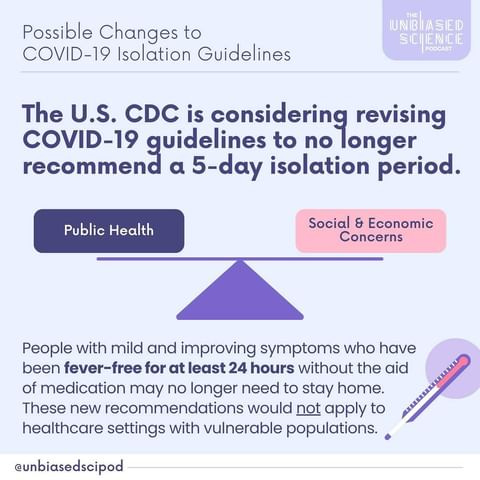Here is real-time footage of me reading the comments on Monday’s newsletter.
Okay, jokes aside… a lot of people were vocally upset and “disappointed” in my approach to COVID-19 risk mitigation.
Yeah, I won’t lie…Monday was not a good day. It was the first day that I returned to work following being sick and I was so excited to get back in the saddle with a newsletter. Woof, the light in my eyes quickly dimmed when I read some of the responses. The backlash was unexpected, especially vile comments wishing long COVID on my kids to teach me a lesson. That crosses a line. You can tell me I have "blood on my hands," but mention my kids and I'm done. (And, yes, I got a little fresh in some of my responses. Am I proud of that? No. Am I human? Yes. Did my mama bear mode get activated? Heck yes. Remember, I am getting messages and comments across channels—so even if you don’t see the vitriol, I do!)
On that note, I’d like to remind folks that I am a human being. A human being who never expected this page to blow up the way it did. I still can’t believe that there are people out there, other than my mother, who “follow me”. I have to remind myself of that—that people don’t fully understand my personal situation and the factors that influence my decision-making. And, looking back, there are important details that I omitted from the newsletter that might have helped clarify my decision-making. For that, I apologize. But I also ask that you, as readers and as fellow humans, try to lead with compassion and patience. While you might have questions and even frustrations regarding my content, remember that your words have a real impact and power. I am always open to feedback and good-faith questions—but aggression and judgment don’t exactly set the stage for a positive exchange.
I understand many of you are, unfortunately, dealing with Long COVID and/or other chronic health issues that make you especially vulnerable to this and other pathogens. You feel terrified of this virus that has killed millions, forgotten by a world that's “moved on”, and left to fend for yourselves. You're frustrated that protection falls on you, that people don't understand your huge risk. I hear you loud and clear. Unbiased Science has been a trusted refuge, and you feel betrayed. I assure you, I haven't forgotten you. Let’s discuss…
At first, I received criticism from the anti-vax crowd who told me that sharing my experience getting sick “proved” that the vaccines don’t work. That’s what prompted this post…
But I felt strongly that sharing my raw and honest experience would raise awareness of how brutal COVID-19 can be (more than “just a cold”)—even for those of us who are otherwise healthy— in the hopes of improving uptake of mitigation strategies including, but not limited to, vaccination. So, why do I focus so much on vaccination?
Great question. While other mitigation measures like masking and social distancing offer immediate protection, their effectiveness often depends on consistent adherence. Vaccines, on the other hand, can provide longer-lasting protection, making them a more sustainable solution for long-term disease control. This does not mean that masking is not important. I have posted many times previously about the importance of masking as part of our larger mitigation strategies. Masking is incredibly effective. So effective that recent studies have found that they are “nearly perfect” at preventing transmission of SARS-CoV-2, effectively protecting both the mask-wearer and those in the company of the person wearing the mask. Yes, if everyone wore a mask, we would expect transmission rates to approach zero. But universal masking is unrealistic—now more than ever (more on this soon).
What’s my personal approach to masking? I always mask when on planes and traveling, when at the doctor’s office or other medical settings, and around anyone I know is high-risk. If anyone should ask me to mask around them, I would mask up without a moment’s hesitation. (My husband and I also teamed up to discuss masking in this IG reel.)
I also monitor local transmission rates using data from my local and state department of health to understand community outbreaks. I am very good about masking during the colder months but have, admittedly, let down my guard in summer months since I: 1) spend 99% of my time outdoors IF I leave the house which is rare and 2) I get hot and uncomfortable with masks in the heat. I know this is going to piss people off. It is the reality of why I am less consistent with masking and I know this holds for other people. Yep, just a human being over here—doing my best, just like you.
Why doesn’t my family consistently mask? One very real factor is that my daughter has had speech issues for years. She is receiving ongoing specialized therapy that relies on watching mouth movements for word formation and tongue placement. Her communication struggles have caused anxiety and frustration for her, so this is a factor in our masking decisions. (Note: Negative comments about my daughter or our parenting choices will result in immediate blocking.)
Why don’t I support universal masking?
As a public health scientist, I understand the importance of balancing risk mitigation with practical, sustainable solutions. Practical is my middle name! The reality is that while universal masking was crucial earlier in the pandemic, we've now entered a phase where a more nuanced approach is necessary. We have an arsenal of mitigation measures at our disposal - vaccines, improved ventilation, testing, air filtration systems, and yes, masking. These tools work together in a "Swiss cheese model," where each layer offers protection, and combined, they significantly reduce risk.
High-quality masks like N95s are remarkably effective at protecting the wearer, regardless of others' masking status. This empowers individuals, especially those at higher risk, to take control of their own protection. While this approach does place more responsibility on vulnerable individuals, it also acknowledges the reality that universal masking adherence has waned (this is an understatement). And I don’t think that my advocating for universal masking is appropriate or would be effective. Public health isn't just about minimizing risks from a disease transmission perspective; it must also consider psychological factors and the likelihood of adherence. We've seen how prolonged, stringent measures can lead to fatigue and even pushback, potentially undermining our broader public health goals and undermining our efforts.
My tactic is to promote a flexible approach that emphasizes personal risk assessment and individual choice in masking. This allows me to maintain public trust and encourage sustained engagement with other crucial public health measures. This also recognizes the varying risk tolerances within our communities and the effectiveness of personal protective equipment, while still advocating for collective responsibility through vaccination, improved ventilation, and staying home when sick.
Next, let’s talk about some of the mitigation measures I took while in the house. Some people chided me for “only” washing my hands. Is that all I did? No, of course not. Per Monday’s newsletter, hand washing was one of the many things I did to minimize my family’s exposure to the virus—even though I was damn near certain that everyone had been exposed because we are a very high-touch, affectionate family that does a lot of cuddling while movie-watching and bedtime snuggles. I also mentioned that I isolated myself to my bedroom and only left when necessary. My kids have their own room and my husband slept in the guest room for the entirety of my illness (until he himself tested positive).
I washed my hand because MUCUS was pouring out of me like lava and on the rare occasion that I left the room for a glass of water or to let the dogs out, I did not want the virus covering any surfaces I touched.
How did I feel comfortable letting my kids return to camp without testing them? Am I A MONSTER?! Am I an embarrassment to the field of public health?!
I don’t think so, but you might. As I explained, we figured out that my son was patient zero which means that he returned to camp at least 10 days after being infected (and was asymptomatic). As for my daughter? It had been 5 days since she showed any symptoms, camp is held outdoors 99% of the day, and we sent her in with a mask when she was indoors. (Sidenote: the entire camp was already decimated. Kids and counselors were dropping like flies. I think attendance dipped below 50% on the day my kids returned. (Cue the: “It’s because of people like YOU, Jessica!” comments.) My approach aligns with the CDC guidance which many of you don’t seem to be fans of. So, let’s briefly discuss it.
I shared some of my initial thoughts on the CDC policy here:
As some of you pointed out, there were economic considerations taken into account when developing this policy. It is not based purely on science. Why? Because at its core, public health is about practical recommendations to maximize the impact of things that will help us stay healthy and, yes, economics plays a role. This is something that some people fundamentally disagree about, and that’s not a hornet’s nest I want to swat at right now. Instead, here’s some of the data that the CDC reviewed when putting together the policy.
Also, I am not sure why people were yelling at me for saying tests aren’t accurate predictors of infectiousness. I never said it because that’s not true. As many correctly pointed out, two consecutive RATs spaced out 24-48 hours apart indicate that a person is extremely unlikely to be contagious. No, I did not test my daughter before returning her. I didn’t have any more tests in the house and I felt confident that after 5 days of no symptoms, knowing she’d be outside 99% of the time, and that she’d be masked when indoors—she was almost certainly not infecting others. Is this a perfect approach? No. But I had no reason to suspect she would be contagious.
I understand that many of you are annoyed by the approach I took to risk, but I stand by it. This is the reality of being a parent and being a human being.
While my approach to risk may not be perfect (I would argue there is no perfect approach), some of the messages I received seemingly undermined and discounted the work that I am proud to have done these past 5 years to raise awareness of the dangers of COVID-19 and to share evidence-based guidance on ways to mitigate risk. This work, which has been dedicated to protecting public health and saving lives, reflects a commitment to science and public service that extends far beyond any single mitigation measure.
Xoxo,
Jess










I was saddened to hear about the vitriolic response to your family’s Covid story. It was an honest and thoughtful piece - a reminder that even the wisest among us can drop our guard. Your story is a sad reminder that the vultures are constantly circling in search of any evidence of vulnerability. What really worries me about this is the degree to which the spectre of hateful attacks is forcing all expressions of opinion by rational people to be filtered - to the point that all ideas become flattened. Have we entered the flatlands of grey thinking?